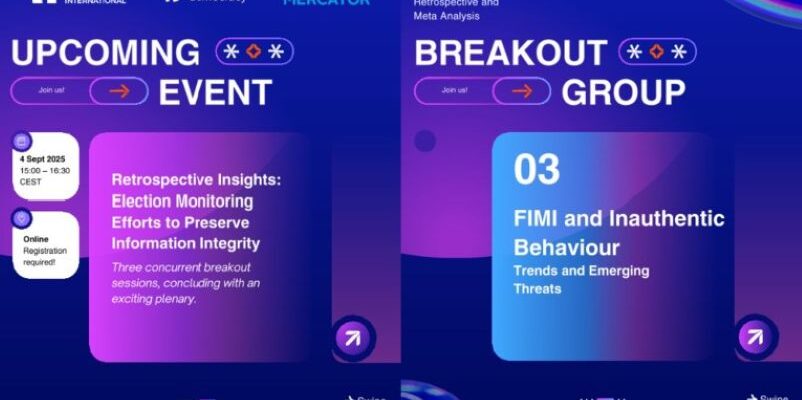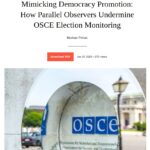
Online Roundtable on Election Monitoring Efforts to Preserve Information Integrity
Berlin, Brussels, 4 September 2025: Since 2023, landmark legislation like the EU’s AI act and Digital Services Act came into effect, while novel generative AI technologies came into widespread mainstream use. Numerous elections in Europe marked by disinformation and foreign interference (e.g., Romania 2024). Globally, the 2024 Trump re-election and Musk’s takeover of X accelerated rollbacks in moderation and fact-checking.
DRI organised a webinar examines what these shifts mean for democratic discourse and research methodologies, focusing on emerging and underreported threats to:
-
Share comparative insights from six European/national elections since 2023.
-
Enable peer exchange on tackling disinformation, interference, and online harms.
-
Collect input to inform a meta-analysis report (Nov 2025) highlighting EU civil society work.
-
Define shared advocacy, research, and policy priorities for the year ahead.
Armin Rabitsch from Election-Watch.EU has been invited to present findings of the social media monitoring conducted during the 2024 Austrian elections and co-moderate the session on Foreign Information Manipulation and Interference (FIMI) and Inauthentic Behaviour – Trends and Emerging Threats.
Since 2023, DRI’s access://democracy project, funded by Stiftung Mercator, has investigated threats to online public discourse, advocated for stronger digital regulation, and monitored emerging technologies.
accountability, Austrian elections, Austrian general elections, election observation, election security, social media monitoring, social media monitoring of electoral campaigns, Telegram monitoring, transparency
 We are hiring!
We are hiring!
 Online Roundtable on Election Monitoring Efforts to Preserve Information Integrity
Online Roundtable on Election Monitoring Efforts to Preserve Information Integrity
 Article on Mimicking Election Observation published
Article on Mimicking Election Observation published
 Two papers presented at the Electoral Integrity Conference 2025
Two papers presented at the Electoral Integrity Conference 2025